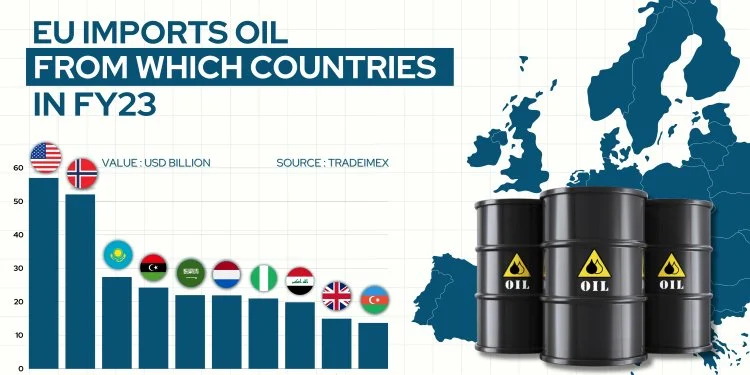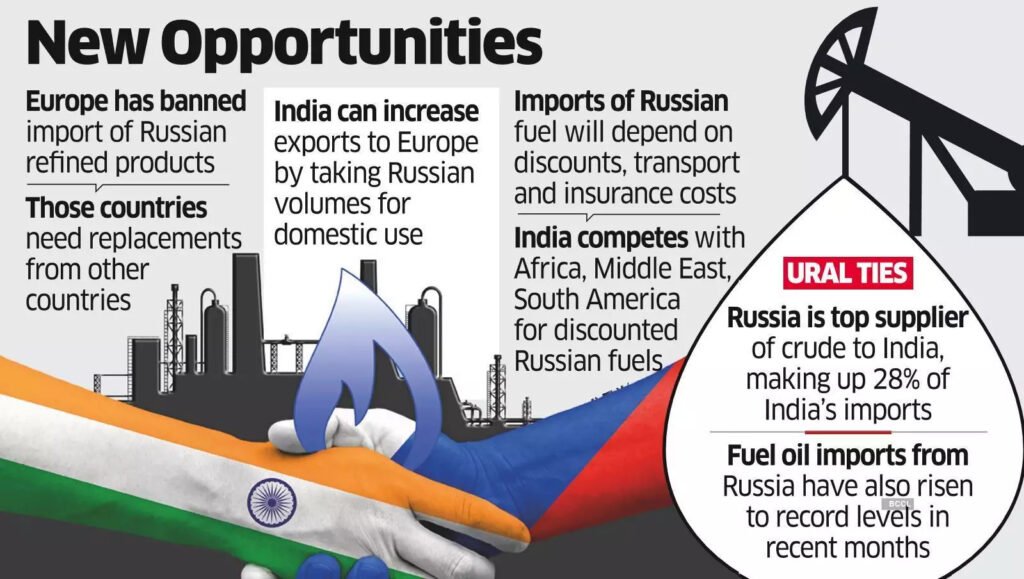

The Complexities of Russian Oil Imports: A Global Perspective, The global energy landscape has undergone a dramatic shift following Western sanctions on Russia. India, one of the largest importers of Russian crude , has navigated a challenging path to balance economic needs with geopolitical considerations. This blog explores the impact of Russia imports, the sanctions imposed by Western nations, and how countries like India are ensuring compliance while benefiting from discounted prices.
1. Why Countries Import Russian Oil
Despite sanctions, many nations continue to import Russia due to its affordability and steady supply. The discounts offered on Russian crude make it an attractive option for energy-hungry economies.
However, geopolitical pressure from the West creates a complex scenario where countries must strike a balance between economic pragmatism and diplomatic obligations. This has led to innovative payment mechanisms and alternative trade routes to bypass traditional financial channels affected by sanctions.
2. Impact of Western Sanctions on Russian Oil Exports
The sanctions imposed by Western nations aim to cripple Russia’s economy by limiting its oil revenue. These restrictions have forced Russia to seek alternative buyers, with China and India emerging as top importers.
While sanctions have disrupted traditional energy markets, they have also led to new alliances and economic strategies. The effectiveness of these measures remains debatable, as Russia continues to find ways to export its oil through indirect channels and shadow fleets.
3. India’s Role in Russian Oil Trade
India has significantly increased its import of Russian oil, taking advantage of lower prices. The country has devised payment mechanisms that bypass Western financial restrictions, ensuring a stable supply.
However, Indian refiners now demand that Russian suppliers provide legally compliant shipments. This move reflects India’s need to maintain strategic autonomy while avoiding potential repercussions from secondary U.S. sanctions.
4. The Rise of Shadow Fleet and Alternative Trade Routes
With traditional trade routes becoming inaccessible, Russia has developed alternative shipping methods, including a “shadow fleet” of vessels that operate outside Western oversight.
These vessels often use deceptive practices such as ship-to-ship transfers and falsified paperwork to circumvent sanctions. While this has allowed Russia to continue exports, it has also led to increased scrutiny from regulatory bodies worldwide.
5. Challenges Faced by Oil-Importing Nations
Countries importing Russia must navigate a maze of legal and financial challenges. Ensuring compliance with international regulations while securing energy needs remains a delicate balancing act.
In addition, logistical issues such as payment delays, insurance complications, and transportation risks make Russian oil imports a high-stakes endeavor. This has led many nations to adopt a cautious approach, weighing economic benefits against geopolitical risks.
6. Future of Russian Oil in the Global Market
The future of Russian oil exports depends on evolving geopolitical dynamics and energy policies. As countries shift towards renewable energy, reliance on Russian oil may decrease over time.
However, in the short term, Russia continues to play a critical role in global energy markets. Whether sanctions tighten further or new trade agreements emerge, the coming years will determine how the world adapts to this new energy reality.
Buy Domin and Hosting with our trusted websites
https://www.hostinger.in/
https://www.bluehost.com/
Visit our website
https://spotself.com/




Leave a Reply